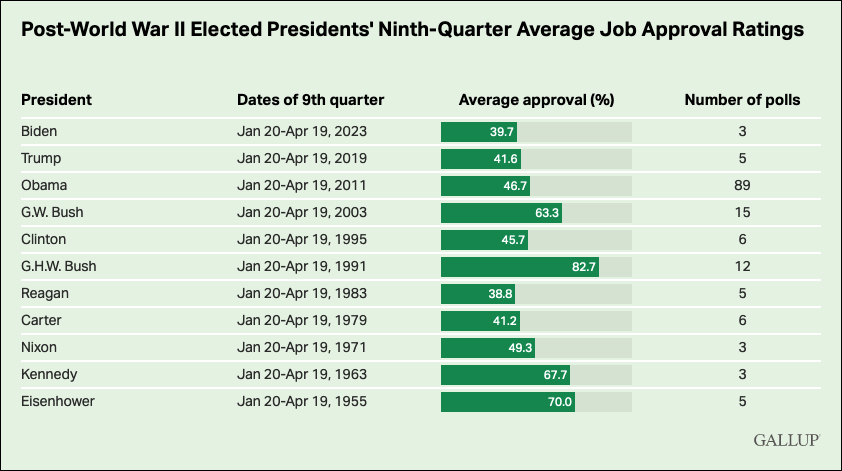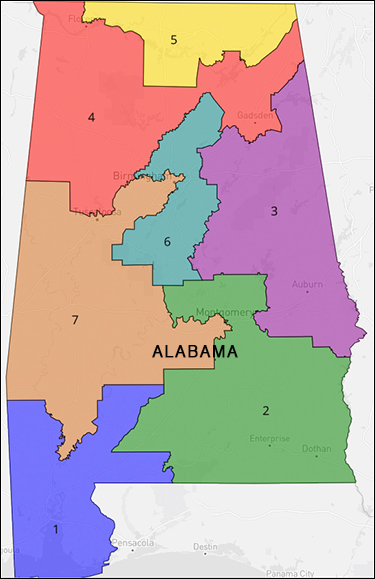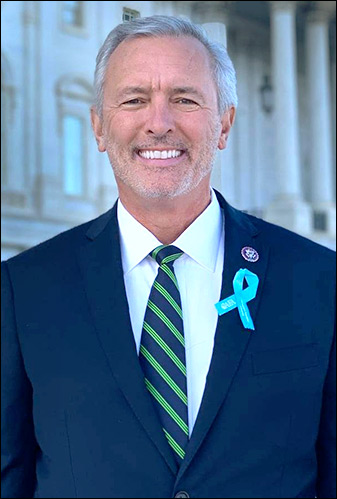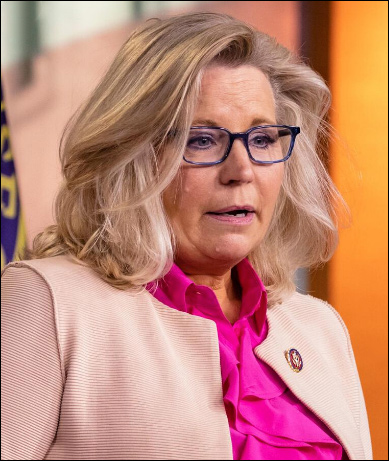By Jim Ellis — Friday, Jan. 5, 2024
President

President Joe Biden / Photo by Gage Skidmore
In a special interview series that consultant Bruce Mellman conducts, veteran pollster Bill McInturff, just before breaking for the holidays, notes that he sees 19 individual polling figures never before reached. Today, we will review some of the most telling of these research trends and illustrate just who has much work ahead of them to improve their political standing.
As McInturff points out, President Joe Biden is entering his re-election year as the most unpopular chief executive in modern American political history. In fact, in examining the Gallup organization tracking figures for every president since Eisenhower, only three presidents have been saddled with an upside-down job approval rating as their respective pre-election year was ending.
President Barack Obama, being eight percentage points underwater, had the worst rating at this commensurate point until Biden. President Donald Trump was second worst at minus-6. As we know, President Obama rebounded to win re-election while President Trump did not. Niether, however, were as far down as President Biden, who now finds himself 22 percentage points below the break-even mark.
The late September NBC News poll that McInturff’s Public Opinion Strategies firm conducted also finds bad news for Republicans. On the abortion issue prior to the Dobbs decision even being leaked, those individuals who self-identified as abortion issue voters actually favored the GOP. In January of 2020, those voters favored a Republican controlled Congress with a 57-37 percent margin. After the Dobbs briefing was leaked, the numbers flipped to a 63-34 percent spread favoring a Democratic controlled Congress.
As has been documented through other polling, President Biden has a major problem on the Israel-Hamas issue. While he is scoring strong points among the aged 65-plus segment (54-44 percent approve of his handling of the issue), we see a different demographic segment turning against Biden. The POS data brings home just how stark a difference exists between young and old in relation to the Israel-Hamas question.
Among the 18-34 aged segment, a plurality of 46 percent are sympathetic with Hamas’ position as compared to just 27 percent who favor Israel. Within this younger voter sample cell, President Biden takes a major hit. Only 24 percent approve of his job performance regarding Israel-Hamas and a whopping 67 percent disapprove.






